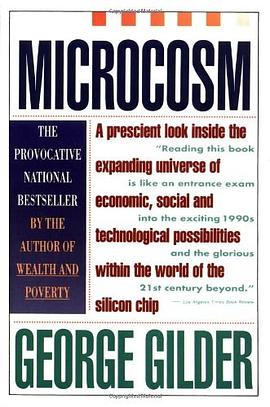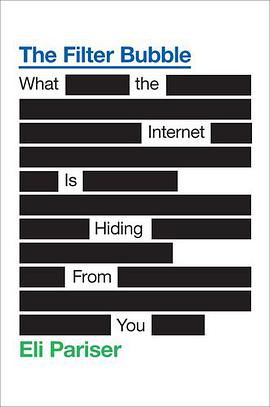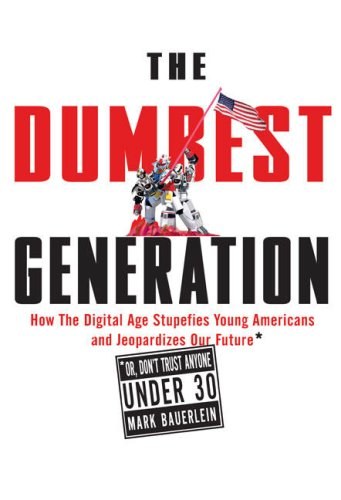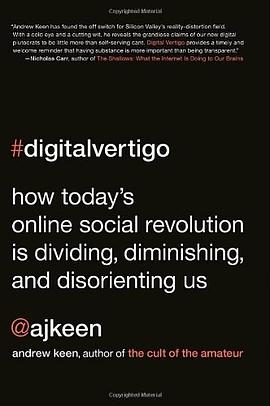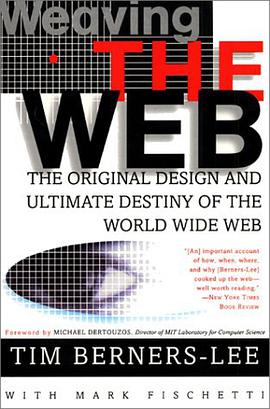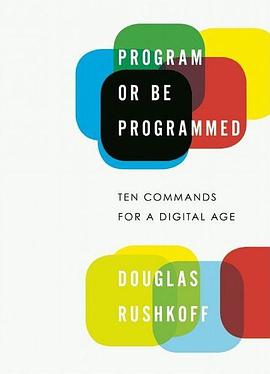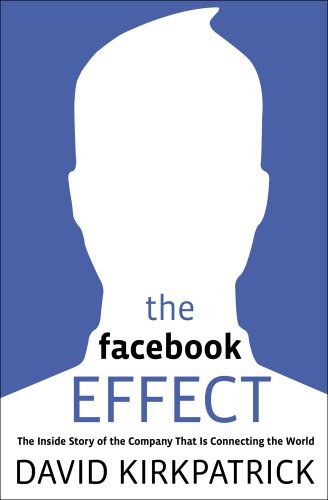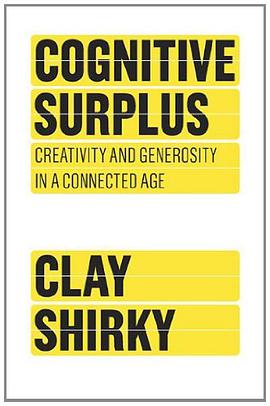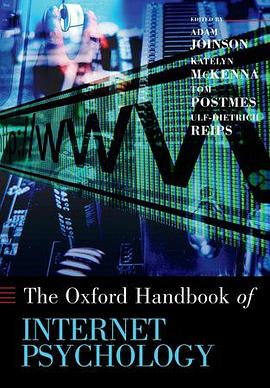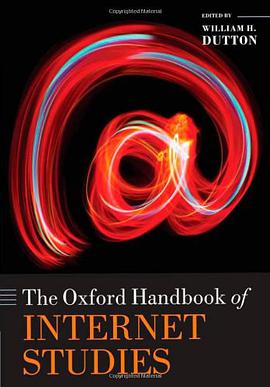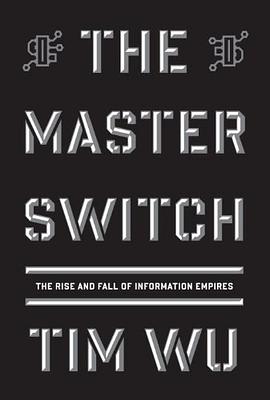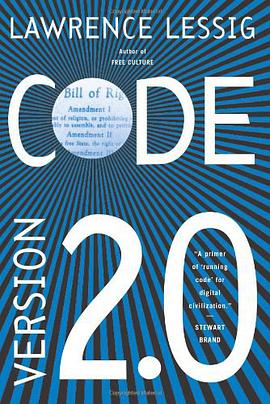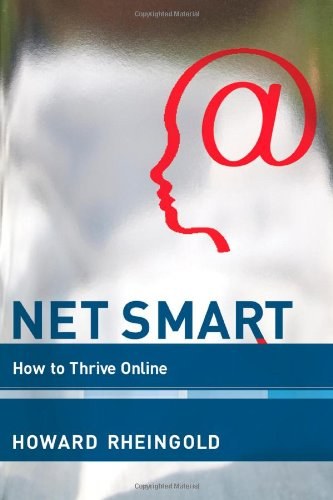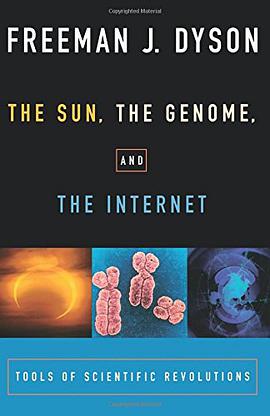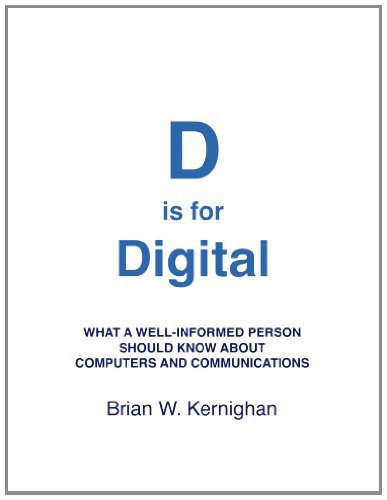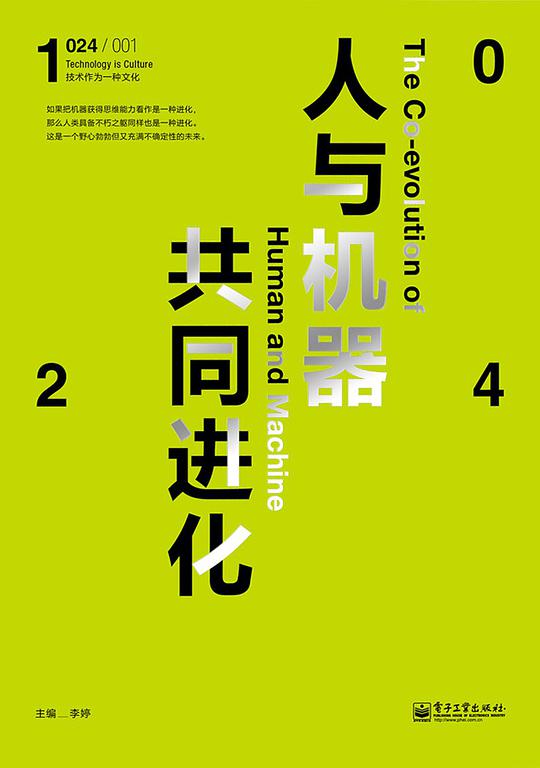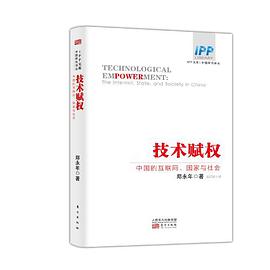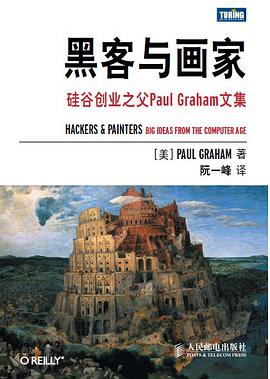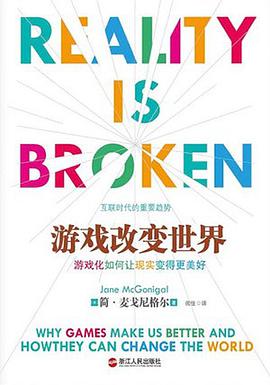互聯網
The Filter Bubble 豆瓣
作者:
Eli Pariser
Penguin Press
2011
- 5
In December 2009, Google began customizing its search results for each user. Instead of giving you the most broadly popular result, Google now tries to predict what you are most likely to click on. According to MoveOn.org board president Eli Pariser, Google's change in policy is symptomatic of the most significant shift to take place on the Web in recent years-the rise of personalization. In this groundbreaking investigation of the new hidden Web, Pariser uncovers how this growing trend threatens to control how we consume and share information as a society-and reveals what we can do about it.Though the phenomenon has gone largely undetected until now, personalized filters are sweeping the Web, creating individual universes of information for each of us. Facebook-the primary news source for an increasing number of Americans-prioritizes the links it believes will appeal to you so that if you are a liberal, you can expect to see only progressive links. Even an old-media bastion like T
The Dumbest Generation 豆瓣
作者:
Mark Bauerlein
Tarcher
2008
- 5
This shocking, lively exposure of the intellectual vacuity of today’s under thirty set reveals the disturbing and, ultimately, incontrovertible truth: cyberculture is turning us into a nation of know-nothings.
Can a nation continue to enjoy political and economic predominance if its citizens refuse to grow up?
For decades, concern has been brewing about the dumbed-down popular culture available to young people and the impact it has on their futures. At the dawn of the digital age, many believed they saw a hopeful answer: The Internet, e-mail, blogs, and interactive and hyper-realistic video games promised to yield a generation of sharper, more aware, and intellectually sophisticated children. The terms “information superhighway” and “knowledge economy” entered the lexicon, and we assumed that teens would use their knowledge and understanding of technology to set themselves apart as the vanguards of this new digital era.
That was the promise. But the enlightenment didn’t happen. The technology that was supposed to make young adults more astute, diversify their tastes, and improve their verbal skills has had the opposite effect. According to recent reports, most young people in the United States do not read literature, visit museums, or vote. They cannot explain basic scientific methods, recount basic American history, name their local political representatives, or locate Iraq or Israel on a map. The Dumbest Generation is a startling examination of the intellectual life of young adults and a timely warning of its consequences for American culture and democracy.
Drawing upon exhaustive research, personal anecdotes, and historical and social analysis, Mark Bauerline presents an uncompromisingly realistic portrait of the young American mind at this critical juncture, and lays out a compelling vision of how we might address its deficiencies.
Can a nation continue to enjoy political and economic predominance if its citizens refuse to grow up?
For decades, concern has been brewing about the dumbed-down popular culture available to young people and the impact it has on their futures. At the dawn of the digital age, many believed they saw a hopeful answer: The Internet, e-mail, blogs, and interactive and hyper-realistic video games promised to yield a generation of sharper, more aware, and intellectually sophisticated children. The terms “information superhighway” and “knowledge economy” entered the lexicon, and we assumed that teens would use their knowledge and understanding of technology to set themselves apart as the vanguards of this new digital era.
That was the promise. But the enlightenment didn’t happen. The technology that was supposed to make young adults more astute, diversify their tastes, and improve their verbal skills has had the opposite effect. According to recent reports, most young people in the United States do not read literature, visit museums, or vote. They cannot explain basic scientific methods, recount basic American history, name their local political representatives, or locate Iraq or Israel on a map. The Dumbest Generation is a startling examination of the intellectual life of young adults and a timely warning of its consequences for American culture and democracy.
Drawing upon exhaustive research, personal anecdotes, and historical and social analysis, Mark Bauerline presents an uncompromisingly realistic portrait of the young American mind at this critical juncture, and lays out a compelling vision of how we might address its deficiencies.
Digital Vertigo 豆瓣
作者:
Andrew Keen
St. Martin's Press
2012
- 5
Weaving the Web 豆瓣
作者:
Tim Berners-Lee
Harper Paperbacks
2000
- 11
Named one of the greatest minds of the 20th century by Time , Tim Berners-Lee is responsible for one of that century's most important advancements: the world wide web. Now, this low-profile genius-who never personally profitted from his invention -offers a compelling protrait of his invention. He reveals the Web's origins and the creation of the now ubiquitous http and www acronyms and shares his views on such critical issues as censorship, privacy, the increasing power of softeware companies , and the need to find the ideal balance between commercial and social forces. He offers insights into the true nature of the Web, showing readers how to use it to its fullest advantage. And he presents his own plan for the Web's future, calling for the active support and participation of programmers, computer manufacturers, and social organizations to manage and maintain this valuable resource so that it can remain a powerful force for social change and an outlet for individual creativity.
Program or Be Programmed 豆瓣
作者:
Douglas Rushkoff
OR Books
2010
- 11
The Facebook Effect 豆瓣
作者:
David Kirkpatrick
Simon & Schuster
2010
- 6
《Facebook 效应》的作者近距离地采访了与Facebook相关的人士,其中包括Facebook的创始人、员工、投资人、意向投资人以及合作伙伴,加起来超过了130人。这是真切详实的访谈,更是超级精彩的故事。作者以其细腻的笔触,精巧的叙事结构,解密了Facebook如何从哈佛的宿舍里萌发,创始人的内讧,权力之争,如何放弃华盛顿邮报的投资,怎样争取到第一个广告客户,而第一轮融资又如何获得一亿美元的估值,让人痴迷的图片产品如何上线,面对Twitter的竞争,与Google的世纪之争……一个创办仅7年,就拥有5亿活跃用户,年收入超过5亿美元,估值超过200亿美元的传奇企业再加上一个年仅26岁的的“娃娃CEO”,在你面前“裸奔”。激情澎湃的创业精神,智慧传奇的融资经历,一个聚合世界的社交帝国向你彻底开放,你还等什么?
IN LITTLE MORE THAN HALF A DECADE, Facebook has gone from a dorm-room novelty to a company with 500 million users. It is one of the fastest growing companies in history, an essential part of the social life not only of teenagers but hundreds of millions of adults worldwide. As Facebook spreads around the globe, it creates surprising effects—even becoming instrumental in political protests from Colombia to Iran. Veteran technology reporter David Kirkpatrick had the full cooperation of Facebook’s key executives in researching this fascinating history of the company and its impact on our lives. Kirkpatrick tells us how Facebook was created, why it has flourished, and where it is going next. He chronicles its successes and missteps, and gives readers the most complete assessment anywhere of founder and CEO Mark Zuckerberg, the central figure in the company’s remarkable ascent. This is the Facebook story that can be found nowhere else. How did a nineteen-year-old Harvard student create a company that has transformed the Internet and how did he grow it to its current enormous size? Kirkpatrick shows how Zuckerberg steadfastly refused to compromise his vision, insistently focusing on growth over profits and preaching that Facebook must dominate (his word) communication on the Internet. In the process, he and a small group of key executives have created a company that has changed social life in the United States and elsewhere, a company that has become a ubiquitous presence in marketing, altering politics, business, and even our sense of our own identity. This is the Facebook Effect.
点击链接进入中文版: Facebook 效应
IN LITTLE MORE THAN HALF A DECADE, Facebook has gone from a dorm-room novelty to a company with 500 million users. It is one of the fastest growing companies in history, an essential part of the social life not only of teenagers but hundreds of millions of adults worldwide. As Facebook spreads around the globe, it creates surprising effects—even becoming instrumental in political protests from Colombia to Iran. Veteran technology reporter David Kirkpatrick had the full cooperation of Facebook’s key executives in researching this fascinating history of the company and its impact on our lives. Kirkpatrick tells us how Facebook was created, why it has flourished, and where it is going next. He chronicles its successes and missteps, and gives readers the most complete assessment anywhere of founder and CEO Mark Zuckerberg, the central figure in the company’s remarkable ascent. This is the Facebook story that can be found nowhere else. How did a nineteen-year-old Harvard student create a company that has transformed the Internet and how did he grow it to its current enormous size? Kirkpatrick shows how Zuckerberg steadfastly refused to compromise his vision, insistently focusing on growth over profits and preaching that Facebook must dominate (his word) communication on the Internet. In the process, he and a small group of key executives have created a company that has changed social life in the United States and elsewhere, a company that has become a ubiquitous presence in marketing, altering politics, business, and even our sense of our own identity. This is the Facebook Effect.
点击链接进入中文版: Facebook 效应
Cognitive Surplus 豆瓣
作者:
Clay Shirky
Penguin Press
2010
- 6
The author of the breakout hit Here Comes Everybody reveals how new technology is changing us from consumers to collaborators, unleashing a torrent of creative production that will transform our world.
For decades, technology encouraged people to squander their time and intellect as passive consumers. Today, tech has finally caught up with human potential. In Cognitive Surplus , Internet guru Clay Shirky forecasts the thrilling changes we will all enjoy as new digital technology puts our untapped resources of talent and goodwill to use at last.
Since we Americans were suburbanized and educated by the postwar boom, we've had a surfeit of intellect, energy, and time-what Shirky calls a cognitive surplus. But this abundance had little impact on the common good because television consumed the lion's share of it-and we consume TV passively, in isolation from one another. Now, for the first time, people are embracing new media that allow us to pool our efforts at vanishingly low cost. The results of this aggregated effort range from mind expanding-reference tools like Wikipedia-to lifesaving-such as Ushahidi.com, which has allowed Kenyans to sidestep government censorship and report on acts of violence in real time.
Shirky argues persuasively that this cognitive surplus-rather than being some strange new departure from normal behavior-actually returns our society to forms of collaboration that were natural to us up through the early twentieth century. He also charts the vast effects that our cognitive surplus-aided by new technologies-will have on twenty-first-century society, and how we can best exploit those effects. Shirky envisions an era of lower creative quality on average but greater innovation, an increase in transparency in all areas of society, and a dramatic rise in productivity that will transform our civilization.
The potential impact of cognitive surplus is enormous. As Shirky points out, Wikipedia was built out of roughly 1 percent of the man-hours that Americans spend watching TV every year. Wikipedia and other current products of cognitive surplus are only the iceberg's tip. Shirky shows how society and our daily lives will be improved dramatically as we learn to exploit our goodwill and free time like never before.
For decades, technology encouraged people to squander their time and intellect as passive consumers. Today, tech has finally caught up with human potential. In Cognitive Surplus , Internet guru Clay Shirky forecasts the thrilling changes we will all enjoy as new digital technology puts our untapped resources of talent and goodwill to use at last.
Since we Americans were suburbanized and educated by the postwar boom, we've had a surfeit of intellect, energy, and time-what Shirky calls a cognitive surplus. But this abundance had little impact on the common good because television consumed the lion's share of it-and we consume TV passively, in isolation from one another. Now, for the first time, people are embracing new media that allow us to pool our efforts at vanishingly low cost. The results of this aggregated effort range from mind expanding-reference tools like Wikipedia-to lifesaving-such as Ushahidi.com, which has allowed Kenyans to sidestep government censorship and report on acts of violence in real time.
Shirky argues persuasively that this cognitive surplus-rather than being some strange new departure from normal behavior-actually returns our society to forms of collaboration that were natural to us up through the early twentieth century. He also charts the vast effects that our cognitive surplus-aided by new technologies-will have on twenty-first-century society, and how we can best exploit those effects. Shirky envisions an era of lower creative quality on average but greater innovation, an increase in transparency in all areas of society, and a dramatic rise in productivity that will transform our civilization.
The potential impact of cognitive surplus is enormous. As Shirky points out, Wikipedia was built out of roughly 1 percent of the man-hours that Americans spend watching TV every year. Wikipedia and other current products of cognitive surplus are only the iceberg's tip. Shirky shows how society and our daily lives will be improved dramatically as we learn to exploit our goodwill and free time like never before.
The Oxford Handbook of Internet Psychology 豆瓣
作者:
Adam Joinson
/
Katelyn McKenna
…
Oxford University Press
2009
- 2
- The first book to map out the whole field on internet psychology, covering the key areas in this burgeoning area
- Presents cutting edge research from leading researchers in the field
- Will lay the foundations for a science of internet psychology
- Part of the successful and critically praised Oxford Handbooks series
Over one billion people use the Internet globally. Psychologists are beginning to understand what people do online, and the impact being online has on behaviour. It's making us re-think many of our existing assumptions about what it means to be a social being. For instance, if we can talk, flirt, meet people and fall in love online, this challenges many of psychology's theories that intimacy or understanding requires physical co-presence.
"The Oxford Handbook of Internet Psychology" brings together many of the leading researchers in what can be termed 'Internet Psychology'. Though a very new area of research, it is growing at a phenomenal pace. In addition to well-studied areas of investigation, such as social identity theory, computer-mediated communication and virtual communities, the volume also includes chapters on topics as diverse as deception and misrepresentation, attitude change and persuasion online, Internet addiction, online relationships, privacy and trust, health and leisure use of the Internet, and the nature of interactivity.
With over 30 chapters written by experts in the field, the range and depth of coverage is unequalled, and serves to define this emerging area of research. Uniquely, this content is supported by an entire section covering the use of the Internet as a research tool, including qualitative and quantitative methods, online survey design, personality testing, ethics, and technological and design issues. While it is likely to be a popular research resource to be 'dipped into', as a whole volume it is coherent and compelling enough to act as a single text book.
"The Oxford Handbook of Internet Psychology" is the definitive text on this burgeoning field. It will be an essential resource for anyone interested in the psychological aspects of Internet use, or planning to conduct research using the 'net'.
- Presents cutting edge research from leading researchers in the field
- Will lay the foundations for a science of internet psychology
- Part of the successful and critically praised Oxford Handbooks series
Over one billion people use the Internet globally. Psychologists are beginning to understand what people do online, and the impact being online has on behaviour. It's making us re-think many of our existing assumptions about what it means to be a social being. For instance, if we can talk, flirt, meet people and fall in love online, this challenges many of psychology's theories that intimacy or understanding requires physical co-presence.
"The Oxford Handbook of Internet Psychology" brings together many of the leading researchers in what can be termed 'Internet Psychology'. Though a very new area of research, it is growing at a phenomenal pace. In addition to well-studied areas of investigation, such as social identity theory, computer-mediated communication and virtual communities, the volume also includes chapters on topics as diverse as deception and misrepresentation, attitude change and persuasion online, Internet addiction, online relationships, privacy and trust, health and leisure use of the Internet, and the nature of interactivity.
With over 30 chapters written by experts in the field, the range and depth of coverage is unequalled, and serves to define this emerging area of research. Uniquely, this content is supported by an entire section covering the use of the Internet as a research tool, including qualitative and quantitative methods, online survey design, personality testing, ethics, and technological and design issues. While it is likely to be a popular research resource to be 'dipped into', as a whole volume it is coherent and compelling enough to act as a single text book.
"The Oxford Handbook of Internet Psychology" is the definitive text on this burgeoning field. It will be an essential resource for anyone interested in the psychological aspects of Internet use, or planning to conduct research using the 'net'.
The Oxford Handbook of Internet Studies 豆瓣
OUP Oxford
2013
- 1
Here Comes Everybody 豆瓣 Goodreads
作者:
Clay Shirky
Penguin Press HC, The
2008
- 2
A revelatory examination of how the wildfirelike spread of new forms of social interaction enabled by technology is changing the way humans form groups and exist within them, with profound long-term economic and social effects-for good and for ill
A handful of kite hobbyists scattered around the world find each other online and collaborate on the most radical improvement in kite design in decades. A midwestern professor of Middle Eastern history starts a blog after 9/11 that becomes essential reading for journalists covering the Iraq war. Activists use the Internet and e-mail to bring offensive comments made by Trent Lott and Don Imus to a wide public and hound them from their positions. A few people find that a world-class online encyclopedia created entirely by volunteers and open for editing by anyone, a wiki, is not an impractical idea. Jihadi groups trade inspiration and instruction and showcase terrorist atrocities to the world, entirely online. A wide group of unrelated people swarms to a Web site about the theft of a cell phone and ultimately goads the New York City police to take action, leading to the culprit's arrest.
With accelerating velocity, our age's new technologies of social networking are evolving, and evolving us, into new groups doing new things in new ways, and old and new groups alike doing the old things better and more easily. You don't have to have a MySpace page to know that the times they are a changin'. Hierarchical structures that exist to manage the work of groups are seeing their raisons d'tre swiftly eroded by the rising technological tide. Business models are being destroyed, transformed, born at dizzying speeds, and the larger social impact is profound.
One of the culture's wisest observers of the transformational power of the new forms of tech-enabled social interaction is Clay Shirky, and Here Comes Everybody is his marvelous reckoning with the ramifications of all this on what we do and who we are. Like Lawrence Lessig on the effect of new technology on regimes of cultural creation, Shirky's assessment of the impact of new technology on the nature and use of groups is marvelously broad minded, lucid, and penetrating; it integrates the views of a number of other thinkers across a broad range of disciplines with his own pioneering work to provide a holistic framework for understanding the opportunities and the threats to the existing order that these new, spontaneous networks of social interaction represent. Wikinomics, yes, but also wikigovernment, wikiculture, wikievery imaginable interest group, including the far from savory. A revolution in social organization has commenced, and Clay Shirky is its brilliant chronicler.
A handful of kite hobbyists scattered around the world find each other online and collaborate on the most radical improvement in kite design in decades. A midwestern professor of Middle Eastern history starts a blog after 9/11 that becomes essential reading for journalists covering the Iraq war. Activists use the Internet and e-mail to bring offensive comments made by Trent Lott and Don Imus to a wide public and hound them from their positions. A few people find that a world-class online encyclopedia created entirely by volunteers and open for editing by anyone, a wiki, is not an impractical idea. Jihadi groups trade inspiration and instruction and showcase terrorist atrocities to the world, entirely online. A wide group of unrelated people swarms to a Web site about the theft of a cell phone and ultimately goads the New York City police to take action, leading to the culprit's arrest.
With accelerating velocity, our age's new technologies of social networking are evolving, and evolving us, into new groups doing new things in new ways, and old and new groups alike doing the old things better and more easily. You don't have to have a MySpace page to know that the times they are a changin'. Hierarchical structures that exist to manage the work of groups are seeing their raisons d'tre swiftly eroded by the rising technological tide. Business models are being destroyed, transformed, born at dizzying speeds, and the larger social impact is profound.
One of the culture's wisest observers of the transformational power of the new forms of tech-enabled social interaction is Clay Shirky, and Here Comes Everybody is his marvelous reckoning with the ramifications of all this on what we do and who we are. Like Lawrence Lessig on the effect of new technology on regimes of cultural creation, Shirky's assessment of the impact of new technology on the nature and use of groups is marvelously broad minded, lucid, and penetrating; it integrates the views of a number of other thinkers across a broad range of disciplines with his own pioneering work to provide a holistic framework for understanding the opportunities and the threats to the existing order that these new, spontaneous networks of social interaction represent. Wikinomics, yes, but also wikigovernment, wikiculture, wikievery imaginable interest group, including the far from savory. A revolution in social organization has commenced, and Clay Shirky is its brilliant chronicler.
The Master Switch 豆瓣
作者:
Tim Wu
Knopf
2010
- 11
In this age of an open Internet, it is easy to forget that every American information industry, beginning with the telephone, has eventually been taken captive by some ruthless monopoly or cartel. With all our media now traveling a single network, an unprecedented potential is building for centralized control over what Americans see and hear. Could history repeat itself with the next industrial consolidation? Could the Internet—the entire flow of American information—come to be ruled by one corporate leviathan in possession of “the master switch”? That is the big question of Tim Wu’s pathbreaking book.
As Wu’s sweeping history shows, each of the new media of the twentieth century—radio, telephone, television, and film—was born free and open. Each invited unrestricted use and enterprising experiment until some would-be mogul battled his way to total domination. Here are stories of an uncommon will to power, the power over information: Adolph Zukor, who took a technology once used as commonly as YouTube is today and made it the exclusive prerogative of a kingdom called Hollywood . . . NBC’s founder, David Sarnoff, who, to save his broadcast empire from disruptive visionaries, bullied one inventor (of electronic television) into alcoholic despair and another (this one of FM radio, and his boyhood friend) into suicide . . . And foremost, Theodore Vail, founder of the Bell System, the greatest information empire of all time, and a capitalist whose faith in Soviet-style central planning set the course of every information industry thereafter.
Explaining how invention begets industry and industry begets empire—a progress often blessed by government, typically with stifling consequences for free expression and technical innovation alike—Wu identifies a time-honored pattern in the maneuvers of today’s great information powers: Apple, Google, and an eerily resurgent AT&T. A battle royal looms for the Internet’s future, and with almost every aspect of our lives now dependent on that network, this is one war we dare not tune out.
Part industrial exposé, part meditation on what freedom requires in the information age, The Master Switch is a stirring illumination of a drama that has played out over decades in the shadows of our national life and now culminates with terrifying implications for our future.
As Wu’s sweeping history shows, each of the new media of the twentieth century—radio, telephone, television, and film—was born free and open. Each invited unrestricted use and enterprising experiment until some would-be mogul battled his way to total domination. Here are stories of an uncommon will to power, the power over information: Adolph Zukor, who took a technology once used as commonly as YouTube is today and made it the exclusive prerogative of a kingdom called Hollywood . . . NBC’s founder, David Sarnoff, who, to save his broadcast empire from disruptive visionaries, bullied one inventor (of electronic television) into alcoholic despair and another (this one of FM radio, and his boyhood friend) into suicide . . . And foremost, Theodore Vail, founder of the Bell System, the greatest information empire of all time, and a capitalist whose faith in Soviet-style central planning set the course of every information industry thereafter.
Explaining how invention begets industry and industry begets empire—a progress often blessed by government, typically with stifling consequences for free expression and technical innovation alike—Wu identifies a time-honored pattern in the maneuvers of today’s great information powers: Apple, Google, and an eerily resurgent AT&T. A battle royal looms for the Internet’s future, and with almost every aspect of our lives now dependent on that network, this is one war we dare not tune out.
Part industrial exposé, part meditation on what freedom requires in the information age, The Master Switch is a stirring illumination of a drama that has played out over decades in the shadows of our national life and now culminates with terrifying implications for our future.
Code 豆瓣
作者:
Lawrence Lessig
Basic Books
2006
The "alarming and impassioned"* book on how the Internet is redefining constitutional law, now reissued as the first popular book revised online by its readers (* New York Times ) There's a common belief that cyberspace cannot be regulated-that it is, in its very essence, immune from the government's (or anyone else's) control. Code , first published in 2000, argues that this belief is wrong. It is not in the nature of cyberspace to be unregulable; cyberspace has no "nature." It only has code-the software and hardware that make cyberspace what it is. That code can create a place of freedom-as the original architecture of the Net did-or a place of oppressive control. Under the influence of commerce, cyberpsace is becoming a highly regulable space, where behavior is much more tightly controlled than in real space. But that's not inevitable either. We can-we must-choose what kind of cyberspace we want and what freedoms we will guarantee. These choices are all about architecture: about what kind of code will govern cyberspace, and who will control it. In this realm, code is the most significant form of law, and it is up to lawyers, policymakers, and especially citizens to decide what values that code embodies. Since its original publication, this seminal book has earned the status of a minor classic. This second edition, or Version 2.0, has been prepared through the author's wiki, a web site that allows readers to edit the text, making this the first reader-edited revision of a popular book.
Net Smart 豆瓣
作者:
Howard Rheingold
The MIT Press
2012
- 3
Like it or not, knowing how to make use of online tools without being overloaded with too much information is an essential ingredient to personal success in the twenty-first century. But how can we use digital media so that they make us empowered participants rather than passive receivers, grounded, well-rounded people rather than multitasking basket cases? In Net Smart, cyberculture expert Howard Rheingold shows us how to use social media intelligently, humanely, and, above all, mindfully. Mindful use of digital media means thinking about what we are doing, cultivating an ongoing inner inquiry into how we want to spend our time. Rheingold outlines five fundamental digital literacies, online skills that will help us do this: attention, participation, collaboration, critical consumption of information (or "crap detection"), and network smarts. He explains how attention works, and how we can use our attention to focus on the tiny relevant portion of the incoming tsunami of information. He describes the quality of participation that empowers the best of the bloggers, netizens, tweeters, and other online community participants; he examines how successful online collaborative enterprises contribute new knowledge to the world in new ways; and he teaches us a lesson on networks and network building. Rheingold points out that there is a bigger social issue at work in digital literacy, one that goes beyond personal empowerment. If we combine our individual efforts wisely, it could produce a more thoughtful society: countless small acts like publishing a Web page or sharing a link could add up to a public good that enriches everybody.
The Sun, The Genome, and The Internet 豆瓣
作者:
Freeman J. Dyson
New York Public Library
2000
- 10
In this visionary look into the future, Freeman Dyson argues that technological changes fundamentally alter our ethical and social arrangements and that three rapidly advancing new technologies — solar energy, genetic engineering, and worldwide communication — together have the potential to create a more equal distribution of the world's wealth.
Dyson begins by rejecting the idea that scientific revolutions are primarily concept driven. He shows rather that new tools are more often the sparks that ignite scientific discovery. Such tool-driven revolutions have profound social consequences: the invention of the telescope turning the medieval view of the world upside down, the widespread use of household appliances in the 1950s replacing servants, to cite just two examples. In looking ahead, Dyson suggests that solar energy, genetics, and the Internet will have similarly transformative effects, with the potential to produce a more just and equitable society. Solar power could bring electricity to even the poorest, most remote areas of third-world nations, allowing everyone access to the vast stores of information on the Internet and effectively ending the cultural isolation of the poorest countries. Similarly, breakthroughs in genetics may well enable us to give our children healthier lives and grow more efficient crops, thus restoring the economic and human vitality of village cultures devalued and dislocated by the global market.
Written with passionate conviction about the ethical uses of science, The Sun, The Genome, and The Internet is both a brilliant reinterpretation of the scientific process and a challenge to use new technologies to close, rather than widen, the gap between rich and poor.
Dyson begins by rejecting the idea that scientific revolutions are primarily concept driven. He shows rather that new tools are more often the sparks that ignite scientific discovery. Such tool-driven revolutions have profound social consequences: the invention of the telescope turning the medieval view of the world upside down, the widespread use of household appliances in the 1950s replacing servants, to cite just two examples. In looking ahead, Dyson suggests that solar energy, genetics, and the Internet will have similarly transformative effects, with the potential to produce a more just and equitable society. Solar power could bring electricity to even the poorest, most remote areas of third-world nations, allowing everyone access to the vast stores of information on the Internet and effectively ending the cultural isolation of the poorest countries. Similarly, breakthroughs in genetics may well enable us to give our children healthier lives and grow more efficient crops, thus restoring the economic and human vitality of village cultures devalued and dislocated by the global market.
Written with passionate conviction about the ethical uses of science, The Sun, The Genome, and The Internet is both a brilliant reinterpretation of the scientific process and a challenge to use new technologies to close, rather than widen, the gap between rich and poor.
D is for Digital 豆瓣
作者:
Brian W Kernighan
CreateSpace
2011
- 9
This book explains how today's computing and communications world operates, from hardware through software to the Internet and the web. It includes enough detail that you can understand how these systems work, no matter what your technical background. The social, political and legal issues that new technology creates are discussed as well, so you can understand the difficult issues we face and appreciate the tradeoffs that have to be made to resolve them.
1024·人与机器共同进化 豆瓣
作者:
东西文库
译言·东西文库/电子工业出版社
2013
《1024》:国内第一本专注于科技文化的mook。
本期创刊号将目光定焦在“人与机器”这个超热点领域。
如果把机器获得思维能力看作是一种进化,
那人类具备不朽之躯同样也是一种进化。
这是一个野心勃勃但又充满不确定性的未来。
在我们一厢情愿地猜测机器将在不远的将来赶超自己而惶惶不可终日时,人类其实还有一个机会——变得更像机器。这并非科幻小说,而是正在发生的现实。人类创造机器的初衷难道不就是为了弥补自身的不足?如果把机器获得思维能力看作是一种进化,那人类具备不坏之躯同样也是一种进化。这是一个野心勃勃但又充满不确定性的未来。八篇专题文章将解析在共同进化的漫长道路上,人与机器如何成为对方的投射,以及由此衍生出的永恒话题——伦理与道德的困境。
专栏文章中,“工具”独具匠心。它分为三个小部分:阐述人与工具的联系、具体工具的展示,以及使用工具制作,旨在凸显科技时代人和工具的新关系。“未来”则是由恒金基金会独家授权的SALT演讲,来自历史学家与未来学家的一次机锋。“遗产”将讲述《全球概览》近半个世纪前不可思议的出版故事,重现一次反主流文化之旅。
本期的收尾之作献给不久前去世的恩格尔巴特。感谢他留下的不朽遗产。愿他安息。
《1024》官网:http://1024.dongxi.net
本期创刊号将目光定焦在“人与机器”这个超热点领域。
如果把机器获得思维能力看作是一种进化,
那人类具备不朽之躯同样也是一种进化。
这是一个野心勃勃但又充满不确定性的未来。
在我们一厢情愿地猜测机器将在不远的将来赶超自己而惶惶不可终日时,人类其实还有一个机会——变得更像机器。这并非科幻小说,而是正在发生的现实。人类创造机器的初衷难道不就是为了弥补自身的不足?如果把机器获得思维能力看作是一种进化,那人类具备不坏之躯同样也是一种进化。这是一个野心勃勃但又充满不确定性的未来。八篇专题文章将解析在共同进化的漫长道路上,人与机器如何成为对方的投射,以及由此衍生出的永恒话题——伦理与道德的困境。
专栏文章中,“工具”独具匠心。它分为三个小部分:阐述人与工具的联系、具体工具的展示,以及使用工具制作,旨在凸显科技时代人和工具的新关系。“未来”则是由恒金基金会独家授权的SALT演讲,来自历史学家与未来学家的一次机锋。“遗产”将讲述《全球概览》近半个世纪前不可思议的出版故事,重现一次反主流文化之旅。
本期的收尾之作献给不久前去世的恩格尔巴特。感谢他留下的不朽遗产。愿他安息。
《1024》官网:http://1024.dongxi.net
技术赋权 豆瓣
Technological Empowerment:the Internet,State,and Society in China
7.5 (8 个评分)
作者:
郑永年
译者:
邱道隆
东方出版社
2014
- 4
在本书中,作者对中国互联网的历史做了一次突破性的研究,细致又全面地观察了中国互联网对于国家和社会的影响,发现互联网给中国的社会—政治变革带来了新的动力。政府权力和社会力量在以互联网为媒介的公共领域中转换。
从大量的数据梳理和事实分析中,作者得出了四重的研究结论。首先,互联网给政府和社会都增加了权力。互联网在促进政治自由化中扮演了重要的角色,使政府更加开放、透明和负责任。第二,互联网产生了大量的影响,高度分散和超越了政府权力的限度。第三,互联网为政府和社会彼此间的契约和分离创造了一个新的基础结构。第四,互联网创造了一种政府和社会的回归关系。政府和社会之间在互联网上相互作用,最终重塑了政府和社会。
从大量的数据梳理和事实分析中,作者得出了四重的研究结论。首先,互联网给政府和社会都增加了权力。互联网在促进政治自由化中扮演了重要的角色,使政府更加开放、透明和负责任。第二,互联网产生了大量的影响,高度分散和超越了政府权力的限度。第三,互联网为政府和社会彼此间的契约和分离创造了一个新的基础结构。第四,互联网创造了一种政府和社会的回归关系。政府和社会之间在互联网上相互作用,最终重塑了政府和社会。
黑客与画家 豆瓣 谷歌图书
Hackers and Painters: Big Ideas from the Computer Age
8.6 (247 个评分)
作者:
保罗·格雷厄姆
译者:
阮一峰
人民邮电出版社
2011
- 4
本书是硅谷创业之父Paul Graham 的文集,主要介绍黑客即优秀程序员的爱好和动机,讨论黑客成长、黑客对世界的贡献以及编程语言和黑客工作方法等所有对计算机时代感兴趣的人的一些话题。书中的内容不但有助于了解计算机编程的本质、互联网行业的规则,还会帮助读者了解我们这个时代,迫使读者独立思考。
本书适合所有程序员和互联网创业者,也适合一切对计算机行业感兴趣的读者。
本书适合所有程序员和互联网创业者,也适合一切对计算机行业感兴趣的读者。
游戏改变世界 豆瓣 Goodreads
Reality is Broken:Why Games Make Us Better and How They Can Change the World
7.4 (39 个评分)
作者:
[美] 简·麦戈尼格尔
译者:
闾佳
浙江人民出版社
2012
- 9
◆《游戏改变世界》是著名未来学家、TED大会新锐演讲者简•麦戈尼格尔探索互联时代重要趋势的最新力作。在书中,作者指出:游戏可以弥补现实世界的不足和缺陷,游戏化可以让现实变得更美好。
◆作者在书中用大量事例告诉我们,游戏击中了人类幸福的核心,提供了令人愉悦的奖励、刺激性的挑战和宏大的胜利,而这些都是现实世界十分匮乏的。她的研究表明,我们可以借助游戏的力量,让生活变得像游戏一样精彩。
◆作者指出了游戏化将要实现的四大目标:更满意的工作、更有把握的成功、更强的社会联系及更宏大的意义,并用大量实践告诉我们该如何驾驭游戏的力量,解决现实问题,并提升幸福感。她告诫我们:如果人们继续忽视游戏,在不远的未来,就会处在极端不利的地位。
◆作者在书中用大量事例告诉我们,游戏击中了人类幸福的核心,提供了令人愉悦的奖励、刺激性的挑战和宏大的胜利,而这些都是现实世界十分匮乏的。她的研究表明,我们可以借助游戏的力量,让生活变得像游戏一样精彩。
◆作者指出了游戏化将要实现的四大目标:更满意的工作、更有把握的成功、更强的社会联系及更宏大的意义,并用大量实践告诉我们该如何驾驭游戏的力量,解决现实问题,并提升幸福感。她告诫我们:如果人们继续忽视游戏,在不远的未来,就会处在极端不利的地位。
